Paths to Knowledge
From its first day to the present day, education has been at the heart of Qatar Foundation’s (QF) mission – and 2022 began with the opening of a new pathway for young people who want to make it their career.
QF’s Pre-University Education launched a scholarship program for high school and university students who have demonstrated academic excellence and have their sights set on becoming teachers, educators, or education consultants.
The first scholarships were awarded to three outstanding graduates of QF school Awsaj Academy whose studies have continued in the UK: Maryam Al-Abdullah, Al-Hanouf Ahmed Al-Dosari, and Fatima Hassan Al Hammadi. Once their university days are over, the trio will join QF as teachers or employees, and contribute to its goal of enhancing education in Qatar.
Having been diagnosed in earlier life with a non-verbal learning disability, Al-Abdullah has studied Special Education Needs, and says this has informed the path she aims to follow as a teacher. “I see a need to educate people on special educational needs,” she said, “and the need to remove the stigma surrounding them.”
From its first day to the present day, education has been at the heart of Qatar Foundation’s (QF) mission – and 2022 began with the opening of a new pathway for young people who want to make it their career.
QF’s Pre-University Education launched a scholarship program for high school and university students who have demonstrated academic excellence and have their sights set on becoming teachers, educators, or education consultants.
The first scholarships were awarded to three outstanding graduates of QF school Awsaj Academy whose studies have continued in the UK: Maryam Al-Abdullah, Al-Hanouf Ahmed Al-Dosari, and Fatima Hassan Al Hammadi. Once their university days are over, the trio will join QF as teachers or employees, and contribute to its goal of enhancing education in Qatar.
Having been diagnosed in earlier life with a non-verbal learning disability, Al-Abdullah has studied Special Education Needs, and says this has informed the path she aims to follow as a teacher. “I see a need to educate people on special educational needs,” she said, “and the need to remove the stigma surrounding them.”
As a momentous year in Qatar’s history began, QF opened up new education opportunities – and innovated to promote sustainability and the Arabic language.
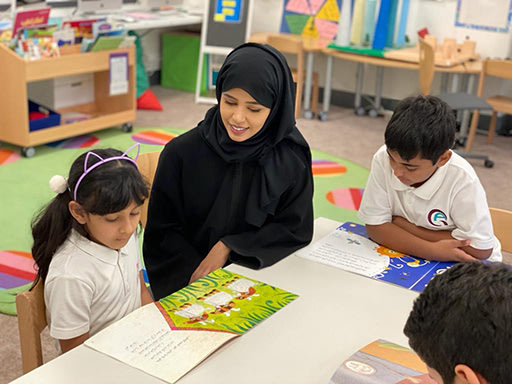

My goal is to leave a positive mark on the education system in Qatar.
Sensory Synergy
By teaming up with a business that serves the autism community in Qatar, in 2022 QF increased access to tools that can help children with autism learn.
Educational tools and sensory fidget toys provided by Sensory Souk – designed to support children in focusing at school and adapting to different learning environments – were made available at various locations across QF’s Education City, reflecting the organization’s commitment to inclusive education.
Sensory Souk was launched as a project by co-founders Alison Saraf and Raana Smith to bring Qatar’s autism community together, raise awareness of the disorder, and provide information to parents and families. It now also supplies products that support the learning and development of children with autism, and has formed a close partnership with QF that has included storytelling events and enhancement of an autism application.
“We saw a clear synergy between QF’s values and Sensory Souk,” said Omer Abdulkader, Commercial Development Specialist at QF. “Families now have easier access to ability-friendly products, some of which are only available in a few places around the country.”
By teaming up with a business that serves the autism community in Qatar, in 2022 QF increased access to tools that can help children with autism learn.
Educational tools and sensory fidget toys provided by Sensory Souk – designed to support children in focusing at school and adapting to different learning environments – were made available at various locations across QF’s Education City, reflecting the organization’s commitment to inclusive education.
Sensory Souk was launched as a project by co-founders Alison Saraf and Raana Smith to bring Qatar’s autism community together, raise awareness of the disorder, and provide information to parents and families. It now also supplies products that support the learning and development of children with autism, and has formed a close partnership with QF that has included storytelling events and enhancement of an autism application.
“We saw a clear synergy between QF’s values and Sensory Souk,” said Omer Abdulkader, Commercial Development Specialist at QF. “Families now have easier access to ability-friendly products, some of which are only available in a few places around the country.”
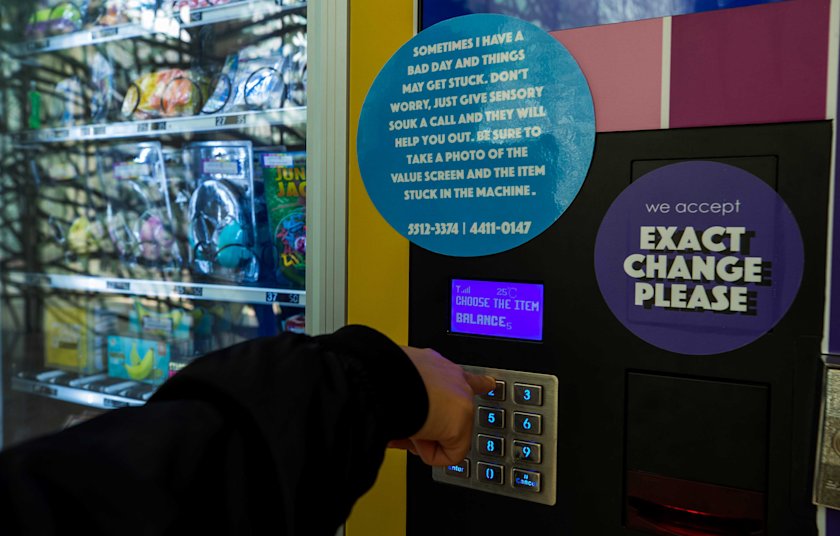
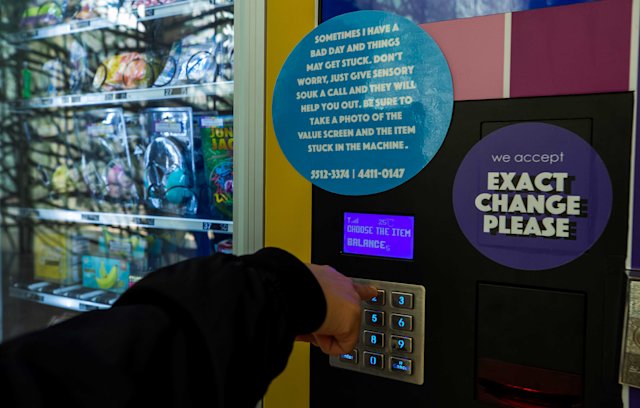
Not only children with autism and related disorders can benefit from these tools – a lot of children have sensory sensitivities and struggle in mainstream classrooms to retain focus.
Partnering for Learning
QF’s global education think-tank WISE was also expanding relationships with the goal of providing new learning opportunities in January – launching an initiative with Visa to make financial literacy, sports, and sustainability key components of a series of joint programs and activities in Qatar.
The tailored program is focused on advancing digital financial inclusion and equity among young people and the wider community, as well as enhancing understanding of sustainable commerce and the transition to a low-carbon environment.
Visa also participated in the WISE Edtech Accelerator bootcamp, providing aspiring educational innovators with experiential workshops and networking opportunities with investors and educational stakeholders.
“The co-creation of this joint program is the materialization of our common ambition: providing a balanced and complete education to the population of Qatar,” said Stavros N. Yiannouka, CEO of WISE. “The next few months will give us the perfect platform to spread this initiative to our active communities and ecosystem.”
QF’s global education think-tank WISE was also expanding relationships with the goal of providing new learning opportunities in January – launching an initiative with Visa to make financial literacy, sports, and sustainability key components of a series of joint programs and activities in Qatar.
The tailored program is focused on advancing digital financial inclusion and equity among young people and the wider community, as well as enhancing understanding of sustainable commerce and the transition to a low-carbon environment.
Visa also participated in the WISE Edtech Accelerator bootcamp, providing aspiring educational innovators with experiential workshops and networking opportunities with investors and educational stakeholders.
“The co-creation of this joint program is the materialization of our common ambition: providing a balanced and complete education to the population of Qatar,” said Stavros N. Yiannouka, CEO of WISE. “The next few months will give us the perfect platform to spread this initiative to our active communities and ecosystem.”
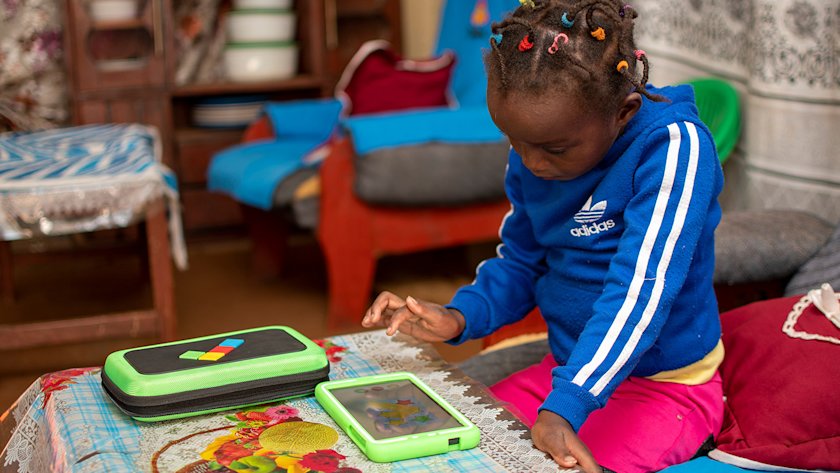
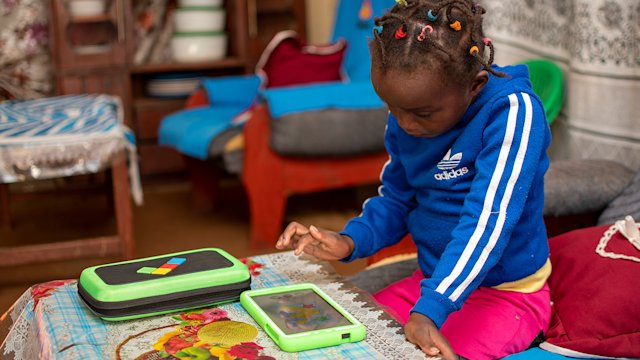
The WISE EdTech Accelerator has supported more than 40 edtech ventures from 22 countries that have helped over 15 million people
Innovating for Sustainability
Created in QF, piloted in QF, and designed to help people go greener through a digital trading approach, an innovative waste management platform took its next steps forward at the start of 2022.
QKONs is a mobile application developed by three sustainability-minded innovators within QF member Hamad Bin Khalifa University’s (HBKU) College of Science and Engineering. It gives users the location of the closest recycling bin and rewards them for each time they recycle, while also allowing waste buyers and recyclers to access real-time tracking of waste and enhance their recycling capacity.
Tested at locations within QF’s Education City before moving into wider usage, QKONs was developed through the HBKU innovation Fund and supported by the Innovation Coupon, a QF grant initiative – and has already led users to think deeper about recycling.
“Before using QKONs, I thought waste is not segregated in Qatar and there was no logic for me to separate it at home,” said QF student Farah El-Assadi. “Now I feel more motivated to take part in protecting the environment and respecting its ecosystem.”
Created in QF, piloted in QF, and designed to help people go greener through a digital trading approach, an innovative waste management platform took its next steps forward at the start of 2022.
QKONs is a mobile application developed by three sustainability-minded innovators within QF member Hamad Bin Khalifa University’s (HBKU) College of Science and Engineering. It gives users the location of the closest recycling bin and rewards them for each time they recycle, while also allowing waste buyers and recyclers to access real-time tracking of waste and enhance their recycling capacity.
Tested at locations within QF’s Education City before moving into wider usage, QKONs was developed through the HBKU innovation Fund and supported by the Innovation Coupon, a QF grant initiative – and has already led users to think deeper about recycling.
“Before using QKONs, I thought waste is not segregated in Qatar and there was no logic for me to separate it at home,” said QF student Farah El-Assadi. “Now I feel more motivated to take part in protecting the environment and respecting its ecosystem.”
QKONs instils environmental consciousness to solve the issue of waste.
On the Global Map
One of the world’s top universities and a leading scientific publication unveiled their list of the scientists and researchers whose work is making the biggest mark in January – and 29 names from a QF university were on it.
Scientists from HBKU’s CSE and the university’s three research centers - Qatar Biomedical Research Institute, Qatar Computing Research Institute (QCRI), and Qatar Environment and Energy Research Institute – were listed among the top two percent of the most-cited scientists worldwide by Stanford University and Elsevier.
“It reflects the high-caliber research that is being carried out at HBKU, and, more importantly, the outstanding scientists and scholars that comprise the faculty of our academic colleges and scientists at the research institutes,” said Dr. Michael Benedik, Provost at HBKU.
��“The world is beginning to take note of the innovative and pioneering work that takes place at HBKU, and we should all be proud.”
One of the world’s top universities and a leading scientific publication unveiled their list of the scientists and researchers whose work is making the biggest mark in January – and 29 names from a QF university were on it.
Scientists from HBKU’s CSE and the university’s three research centers - Qatar Biomedical Research Institute, Qatar Computing Research Institute (QCRI), and Qatar Environment and Energy Research Institute – were listed among the top two percent of the most-cited scientists worldwide by Stanford University and Elsevier.
“It reflects the high-caliber research that is being carried out at HBKU, and, more importantly, the outstanding scientists and scholars that comprise the faculty of our academic colleges and scientists at the research institutes,” said Dr. Michael Benedik, Provost at HBKU.
“The world is beginning to take note of the innovative and pioneering work that takes place at HBKU, and we should all be proud.”
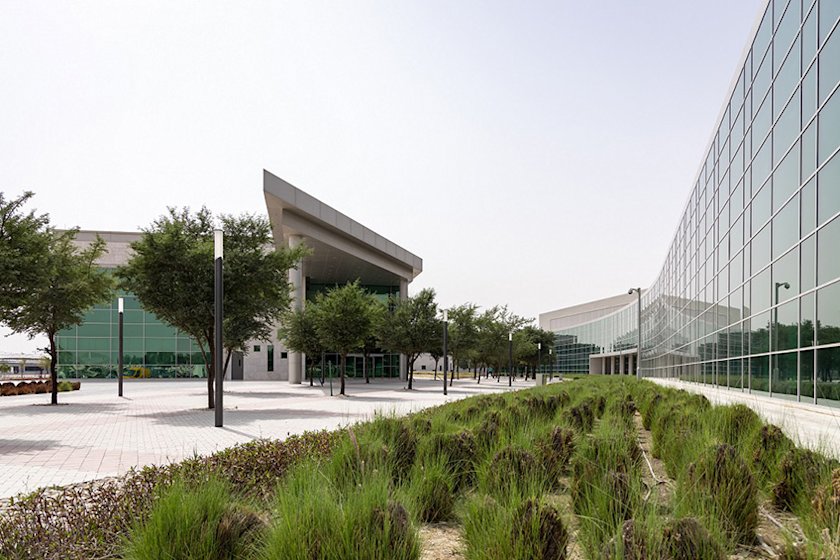
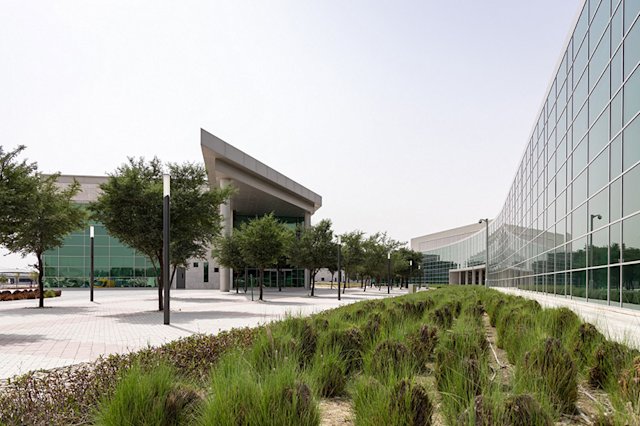
Over 35 patents have been filed by Qatar Environment and Energy Research Institute
Qatar Biomedical Research Institute’s research centers focus on:
- Translational cancer and immunity
- Diabetes research
- Neurological disorders
The Language of Technology
This pioneering spirit within QF was again demonstrated in January with the development of a groundbreaking text-to-speech model in the Arabic language.
The first Artificial Intelligence-based model to be created by the Arabic Language Technologies team at HBKU’s QCRI, it includes a ‘natural’ voice called Hamza that is suitable for news and reading, and a more ‘expressive’ voice called Amina that is targeted toward younger audiences, by reading stories and supporting the learning process.
The technology is intended to be made available to users and developers across the Middle East and North Africa region, and Dr. Ahmed Abdelali, Senior Software Engineer at QCRI, said: “Automatic speech generation is an important technology that impacts our lives on a daily basis – such technology is not a luxury any more, but rather a necessity, as it provides a solution to many challenging problems.
“Generating a human-like voice that is clear and understandable was a dream our researchers were eager to achieve, and we are very proud of their achievement.”
This pioneering spirit within QF was again demonstrated in January with the development of a groundbreaking text-to-speech model in the Arabic language.
The first Artificial Intelligence-based model to be created by the Arabic Language Technologies team at HBKU’s QCRI, it includes a ‘natural’ voice called Hamza that is suitable for news and reading, and a more ‘expressive’ voice called Amina that is targeted toward younger audiences, by reading stories and supporting the learning process.
The technology is intended to be made available to users and developers across the Middle East and North Africa region, and Dr. Ahmed Abdelali, Senior Software Engineer at QCRI, said: “Automatic speech generation is an important technology that impacts our lives on a daily basis – such technology is not a luxury any more, but rather a necessity, as it provides a solution to many challenging problems.
“Generating a human-like voice that is clear and understandable was a dream our researchers were eager to achieve, and we are very proud of their achievement.”
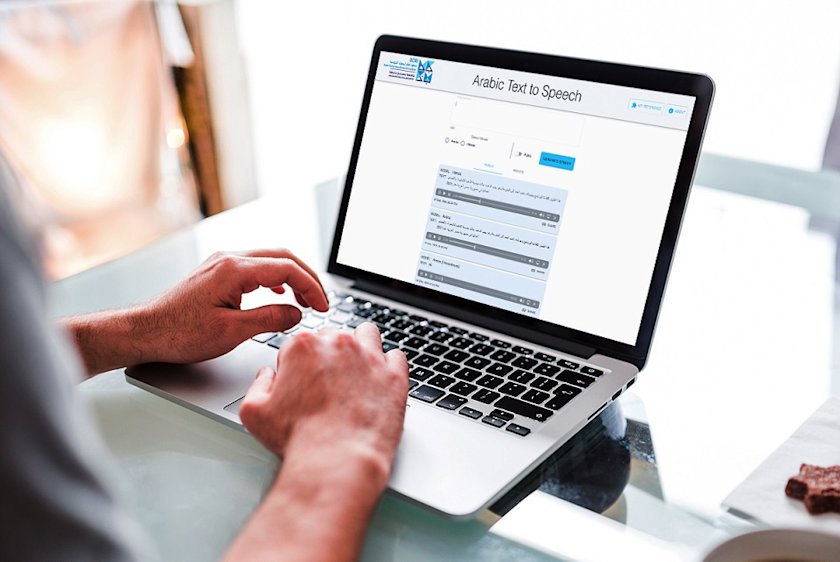
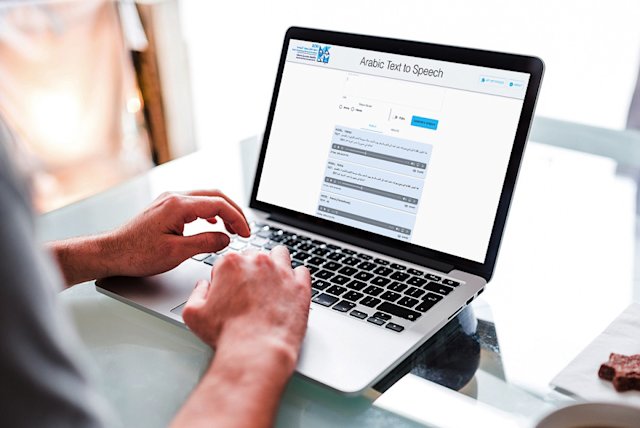
Qatar Computing Research Institute conducts research in:
- Arabic language technologies
- Social computing
- Data analytics
- Cybersecurity
Opening Up the World
Allowing students to learn how the Arabic language works in the real world is the aim of a new book by an Arabic expert within a QF partner university, published in January.
Reading the Arab World – authored by Dr. Yehia Mohamed, Associate Professor of Arabic at Georgetown University in Qatar – is designed to enhance Arabic learners’ reading, writing, speaking, and critical thinking skills on contemporary issues in the Arab world, through providing them with authentic texts on topics ranging from politics and the economy to youth and culture.
Fostering greater understanding of the world is also the goal of a new research institute announced by a QF partner university in January – producing and promoting evidence-based storytelling on the history, cultures, societies, and media of the Global South.
The Institute for Advanced Study of the Global South has been established by Northwestern University in Qatar to help address the fact that stories about the Arab world and the Global South are often told purely from a Western perspective.
Allowing students to learn how the Arabic language works in the real world is the aim of a new book by an Arabic expert within a QF partner university, published in January.
Reading the Arab World – authored by Dr. Yehia Mohamed, Associate Professor of Arabic at Georgetown University in Qatar – is designed to enhance Arabic learners’ reading, writing, speaking, and critical thinking skills on contemporary issues in the Arab world, through providing them with authentic texts on topics ranging from politics and the economy to youth and culture.
Fostering greater understanding of the world is also the goal of a new research institute announced by a QF partner university in January – producing and promoting evidence-based storytelling on the history, cultures, societies, and media of the Global South.
The Institute for Advanced Study of the Global South has been established by Northwestern University in Qatar to help address the fact that stories about the Arab world and the Global South are often told purely from a Western perspective.
The institute has an inclusive vision of globality that recognizes the diversities and inequalities that shape our world.
The Institute for Advanced Study of the Global South will focus on 4 themes:
- Ways of Knowing in the Global South
- Geopolitics, Information, and Culture
- The Global Future
- Media Work in the Global South
Putting Fitness First
At the start of World Cup year, the message about the value that sport and exercise bring to people’s lives was amplified by QF partner university Weill Cornell Medicine-Qatar, as its Sahtak Awalan – Your Health First public health campaign unveiled ‘The Fitness Box’.
Launched with the Ministry of Municipality, the innovative concept uses upcycled shipping containers equipped with giant screens to broadcast free fitness classes in Arabic, English, and Urdu, led by top instructors, to the local community at green spaces in Qatar.
And in the field of medical research, QF member Sidra Medicine developed a new blood processing method that can pinpoint infections such as sepsis faster, immediately applying it to test for such infections in children admitted to the hospital.
According to Dr. Patrick Tang, Sidra Medicine’s Division Chief of Microbiology, the method “can quickly save lives, because it is inexpensive, user-friendly, and easily integrated into a standard laboratory workflow.”
At the start of World Cup year, the message about the value that sport and exercise bring to people’s lives was amplified by QF partner university Weill Cornell Medicine-Qatar, as its Sahtak Awalan – Your Health First public health campaign unveiled ‘The Fitness Box’.
Launched with the Ministry of Municipality, the innovative concept uses upcycled shipping containers equipped with giant screens to broadcast free fitness classes in Arabic, English, and Urdu, led by top instructors, to the local community at green spaces in Qatar.
And in the field of medical research, QF member Sidra Medicine developed a new blood processing method that can pinpoint infections such as sepsis faster, immediately applying it to test for such infections in children admitted to the hospital.
According to Dr. Patrick Tang, Sidra Medicine’s Division Chief of Microbiology, the method “can quickly save lives, because it is inexpensive, user-friendly, and easily integrated into a standard laboratory workflow.”
With the FIFA World Cup Qatar 2022 approaching, levels of enthusiasm for physical activity are sky-high, and the Fitness Box gives people a great outlet for that energy.
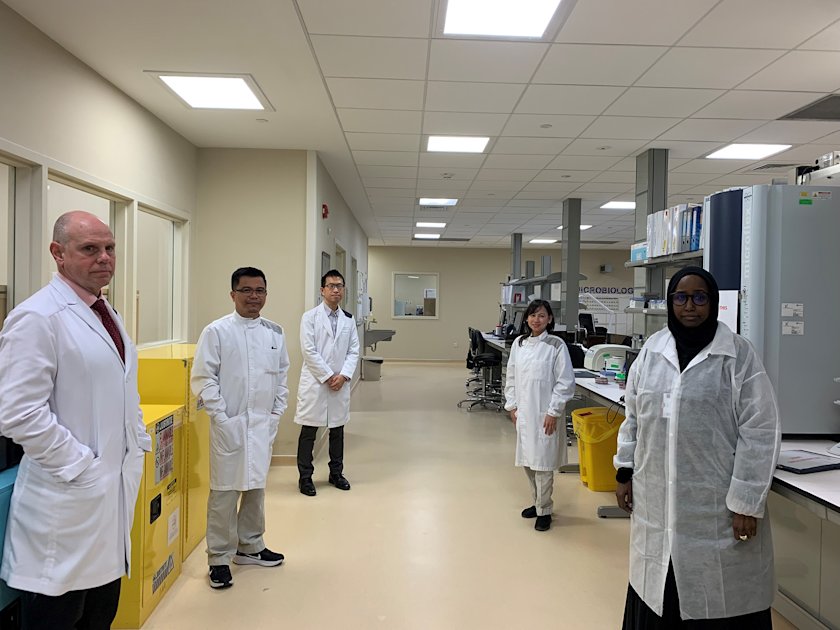
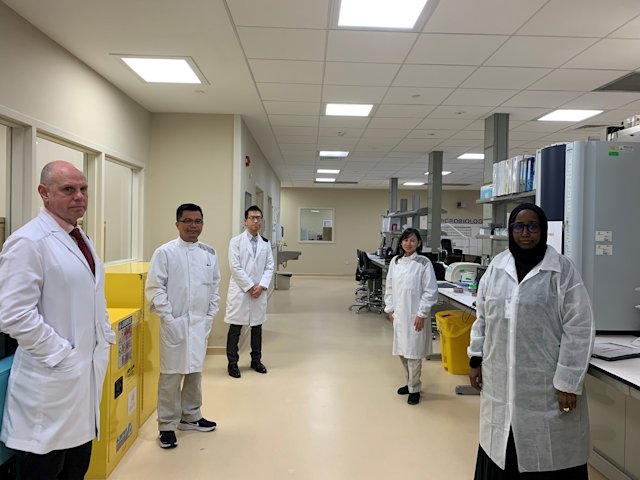
Encouraging Exploration
Within QF’s network of schools, students are inspired to be curious and embrace a love of science and research – and in a world still recalibrating itself at the start of 2022 due to the impact of COVID-19, one QF student set out to explore the impact of the pandemic on young people’s mental health.
Haya Al Kubaisi, a Grade 12 student at Qatar Academy Doha, was among those selected for QF member Qatar National Research Fund’s High School Research Experience Program (HSREP), which provides senior school students with the chance to get hands-on exposure to the world of science.
She participated in research led by Hamad Medical Corporation to study how high school students’ mental wellbeing has been affected by COVID-19, including surveying her fellow students within QF schools, and said: “The trainings and real work experience I had through HSREP helped me explore my true passions and interests.
“I felt this project would further enhance my understanding in this area, and help me develop new skills.”
Within QF’s network of schools, students are inspired to be curious and embrace a love of science and research – and in a world still recalibrating itself at the start of 2022 due to the impact of COVID-19, one QF student set out to explore the impact of the pandemic on young people’s mental health.
Haya Al Kubaisi, a Grade 12 student at Qatar Academy Doha, was among those selected for QF member Qatar National Research Fund’s High School Research Experience Program (HSREP), which provides senior school students with the chance to get hands-on exposure to the world of science.
She participated in research led by Hamad Medical Corporation to study how high school students’ mental wellbeing has been affected by COVID-19, including surveying her fellow students within QF schools, and said: “The trainings and real work experience I had through HSREP helped me explore my true passions and interests.
“I felt this project would further enhance my understanding in this area, and help me develop new skills.”
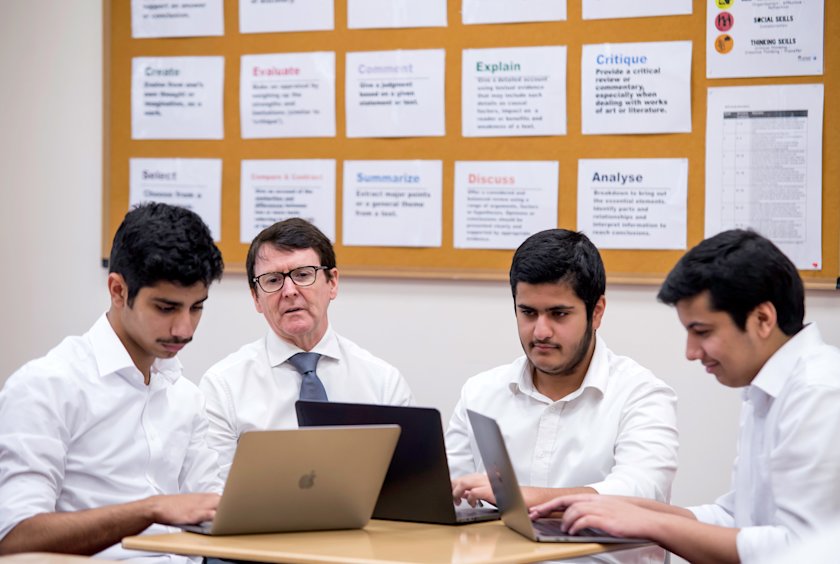
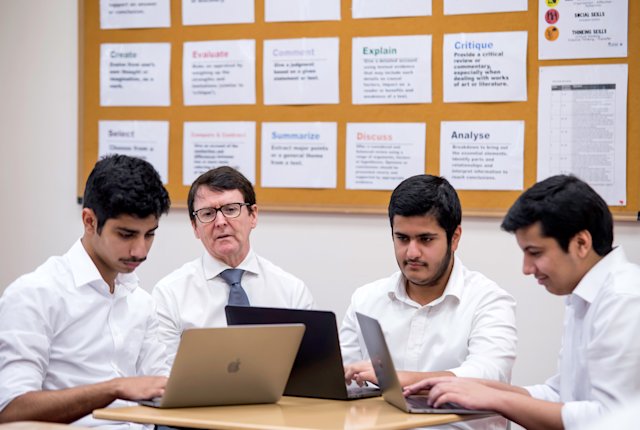
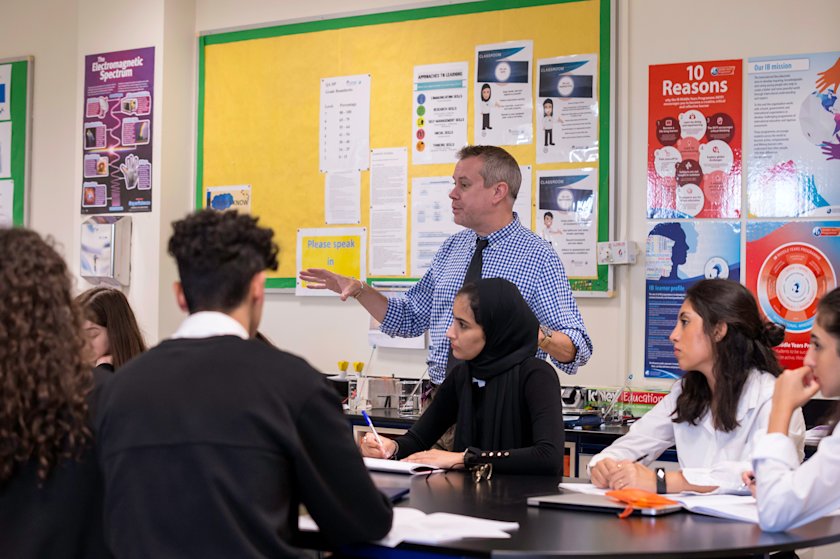
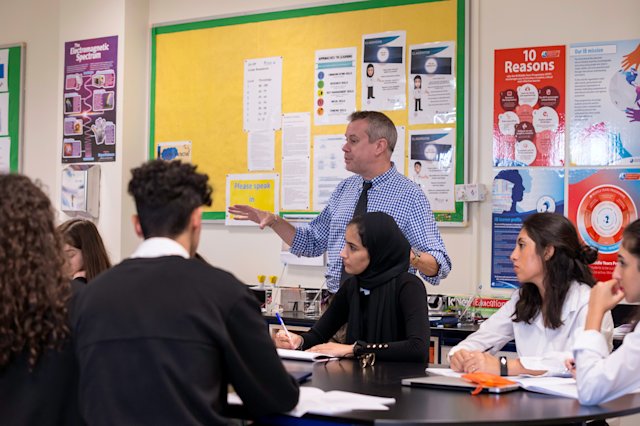
The program provides students with insight, knowledge, and understanding of the attributes that employers seek in employees.
The Art of Debate
Qatar was the focal point for the Arabic debating community in January – with the month seeing young people from around the world converge on Doha for the fourth season of the Elite Academy, organized by QF member QatarDebate.
The Elite Academy is designed to elevate participants’ skills in the science of debating and equip them to become trainers and arbitrators, as they learn from leading international institutions in the fields of dialogue, negotiation, and decision-making.
Meanwhile, students from Qatar, Kuwait, Oman, and Bahrain also gathered in Doha for the latest batch of QatarDebate’s Path Academy, a training program for high school students that teaches them the skills of critical thinking, self-learning, teamwork, and applying logic.
And QatarDebate was also prominent on the international stage during the month, organizing the Turkish National Universities Arabic Debating Championship – part of the center’s efforts to inspire young Arabic speakers throughout the world to embrace both the Arabic language, and the language of debate.
Qatar was the focal point for the Arabic debating community in January – with the month seeing young people from around the world converge on Doha for the fourth season of the Elite Academy, organized by QF member QatarDebate.
The Elite Academy is designed to elevate participants’ skills in the science of debating and equip them to become trainers and arbitrators, as they learn from leading international institutions in the fields of dialogue, negotiation, and decision-making.
Meanwhile, students from Qatar, Kuwait, Oman, and Bahrain also gathered in Doha for the latest batch of QatarDebate’s Path Academy, a training program for high school students that teaches them the skills of critical thinking, self-learning, teamwork, and applying logic.
And QatarDebate was also prominent on the international stage during the month, organizing the Turkish National Universities Arabic Debating Championship – part of the center’s efforts to inspire young Arabic speakers throughout the world to embrace both the Arabic language, and the language of debate.
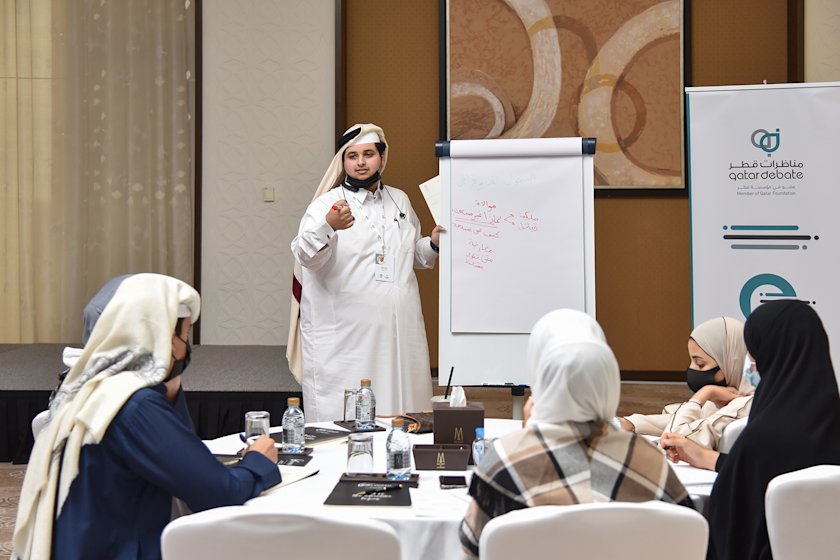
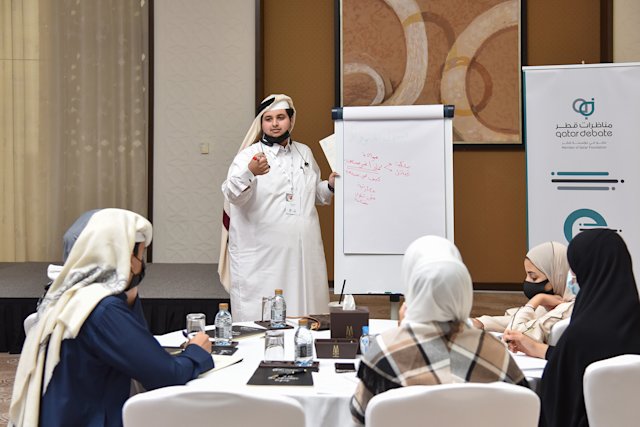
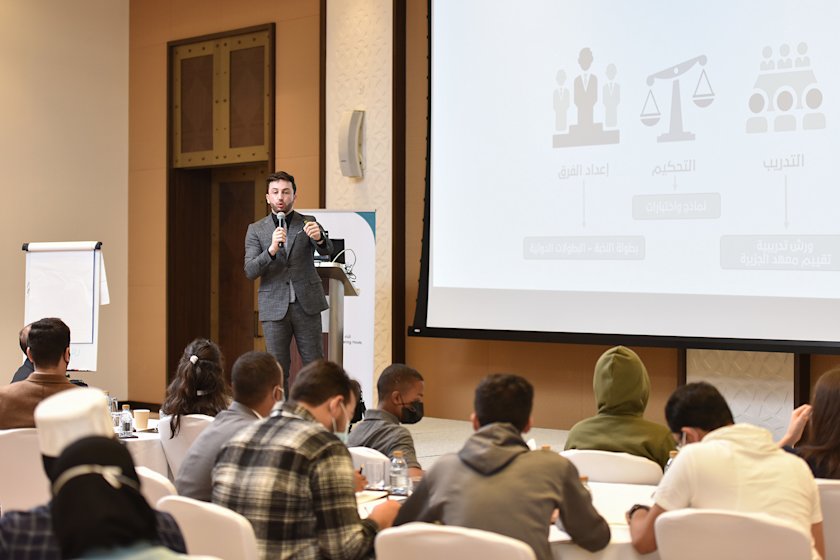
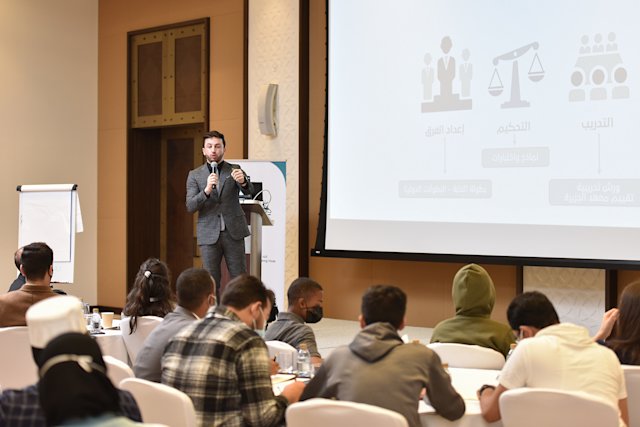
- Young people from 36 countries participated in QatarDebate’s Elite Academy
- 25 students participated in QatarDebate’s Path Academy